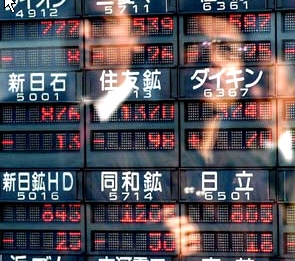By Junichi Takayama, Nikko Asset Management Japan Equity Investment Director
In a new investment guide from Nikko Asset Management (read here), Japan Equity Investment Director Junichi Takayama explains why Japan is ripe for investment and how to capture those investment opportunities.
Although growth investing has led following the global financial crisis, Japan’s value stocks are now in the ascendency. Crucially though, value investing is about knowing where to look and when to invest.
Since the global financial crisis, the low economic growth, low interest rate era has kept growth investing in the spotlight, both in Japan and across the rest of the world. However, a turnaround for value stocks is currently underway, and looks set to last for several years. Why is this shift being ignored by global investors? To answer this question, you must start by examining the past.
Comparing the bubble era and the present
Compared to the 1980s, Japan’s market environment has changed dramatically. In 1988, the Nikkei 225 was trading at a price-to-earnings ratio of 63x, due primarily to excess liquidity and amid a proliferation of widely- criticised cross shareholdings. The price-to-book ratio of the Nikkei index was 5x, suggesting many of its constituents were heavily overvalued and artificially supported. As Japanese equities fell from their exaggerated valuations, and entered into two consecutive ‘Lost Decades’, this pushed value to the periphery, and investors have spent the subsequent years avoiding Japan and its so-called ‘value traps’.
The Japan of today
The market environment for Japanese equities is in a much healthier state compared to the bubble era. At the end of March 2022, the Nikkei’s Forward P/E ratio is a healthy 14x. Moreover, its P/B ratio is now at just 1.3x compared to the 5.0 reached in 1988.
Similarly, the dividend yield of the Nikkei demonstrates how shareholder expectations have evolved. Back in 1988, when overseas investment into Japan was at its peak, the Nikkei’s dividend yield was a modest 0.46%, as Japanese companies placed little importance on dividends at the time, and valuations were stretched. In 2022, the Nikkei dividend yield has risen to a much more favourable 2.45%.
Japan’s long-term cyclical and diversification opportunities
Japan is the most sensitive to economic cycles among the major economies, with the highest proportion of cyclical stocks compared to the US and the EU. As global economies recover from pandemic-caused downturns, we expect foreign investors to reconsider their stance on Japan and start increasing their allocations.
From a portfolio construction perspective, Japan equities offer attractive diversification benefit due to its relatively low correlation to other equity markets over the past 20 years. While Europe is highly correlated to the US (0.85), Japan’s correlation to the US and Europe are relatively low, 0.64 and 0.68, respectively.
Despite Japan’s tighter trade relations with China and the Asia ex-Japan region, its equity market correlation with the region is just 0.57, reflecting a significntly different risk profile. From this perspetive, Japan benefits from Asia growth but is not exposed to the same market risks, such as with the impact of the US-China trade war, or more recent China regulatory crackdowns.
In addition, the long-term global shift toward a decarbonised society will continue to present opportunities for companies with environmentally-friendly technologies, especially in hydrogen and battery technology.
Japanese companies within the value sphere have an abundance of advanced technology related to hydrogen energy, including those linked to automobiles and energy infrastructure, and these value plays stand to benefit significantly from improved economic conditions.
The question for investors is this: if Japan now presents a significant investment opportunity, how can investment managers best capture it?





